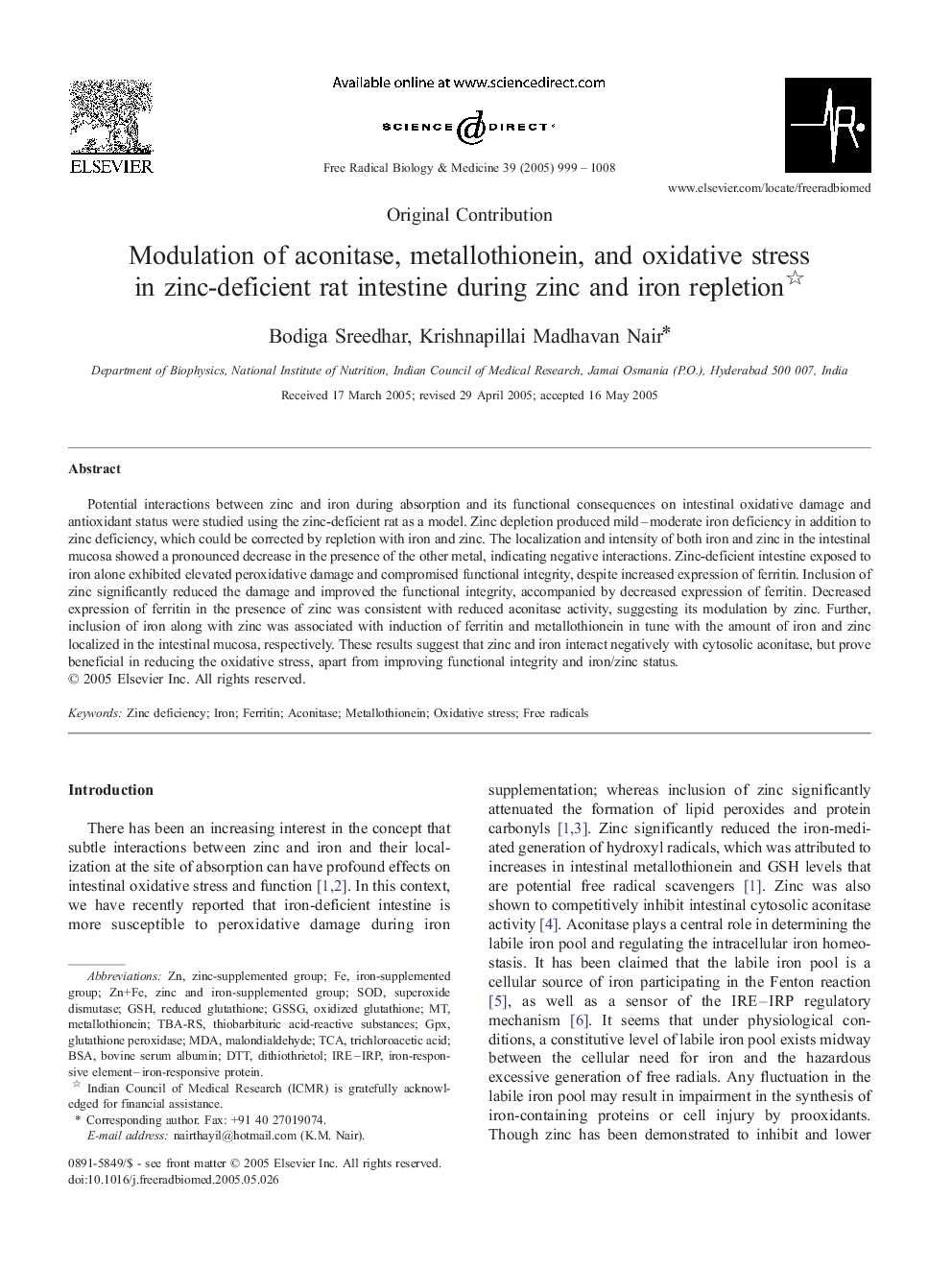| Article ID | Journal | Published Year | Pages | File Type |
|---|---|---|---|---|
| 10738955 | Free Radical Biology and Medicine | 2005 | 10 Pages |
Abstract
Potential interactions between zinc and iron during absorption and its functional consequences on intestinal oxidative damage and antioxidant status were studied using the zinc-deficient rat as a model. Zinc depletion produced mild-moderate iron deficiency in addition to zinc deficiency, which could be corrected by repletion with iron and zinc. The localization and intensity of both iron and zinc in the intestinal mucosa showed a pronounced decrease in the presence of the other metal, indicating negative interactions. Zinc-deficient intestine exposed to iron alone exhibited elevated peroxidative damage and compromised functional integrity, despite increased expression of ferritin. Inclusion of zinc significantly reduced the damage and improved the functional integrity, accompanied by decreased expression of ferritin. Decreased expression of ferritin in the presence of zinc was consistent with reduced aconitase activity, suggesting its modulation by zinc. Further, inclusion of iron along with zinc was associated with induction of ferritin and metallothionein in tune with the amount of iron and zinc localized in the intestinal mucosa, respectively. These results suggest that zinc and iron interact negatively with cytosolic aconitase, but prove beneficial in reducing the oxidative stress, apart from improving functional integrity and iron/zinc status.
Keywords
MDATBA-RSDithiothrietolGSSGGPXDTTTCAGSHBSAbovine serum albuminIronaconitasetrichloroacetic acidOxidative stressFree radicalsSODSuperoxide dismutaseFerritinmalondialdehydeMetallothioneinthiobarbituric acid-reactive substancesreduced glutathioneZinc deficiencyoxidized glutathioneglutathione peroxidase
Related Topics
Life Sciences
Biochemistry, Genetics and Molecular Biology
Ageing
Authors
Bodiga Sreedhar, Krishnapillai Madhavan Nair,
